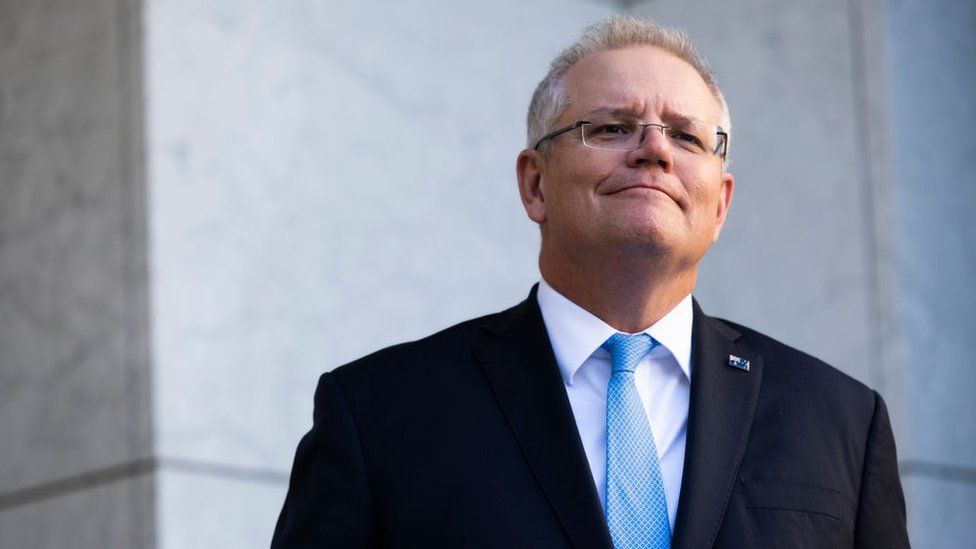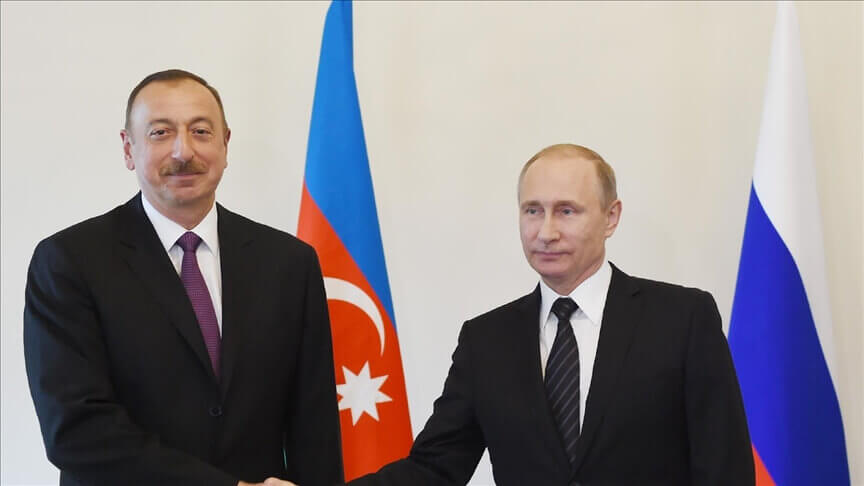South Asia
A report submitted to the American Department of Defense suggested that the authorities were aware that the Afghan air force did not have the ability to survive, following the withdrawal of US troops from Afghanistan. It blamed the lack of training and support given to Afghan staff to prepare them for the forces’ withdrawal. [NPR]
Indian External Affairs Minister S. Jaishankar spoke with Emirati Foreign Minister Sheikh Abdullah bin Zayed Al Nahyan to express his regret for the drone attack, which led to the death of two Indians. Nahyan reassured him of the UAE government’s support to the victims’ families. [Indian External Affairs Ministry]
Central Asia and the Caucasus
Azerbaijani President Ilham Aliyev held a phone conversation with his Russian counterpart Vladimir Putin on Tuesday to discuss bilateral, regional and international issues. Both leaders talked extensively about the Ukraine crisis and criticised Kyiv’s “destructive policy” of blaming Russia. They also discussed the situation in Kazakhstan and vowed to “improve the Russia-Azerbaijan strategic partnership.” [Kremlin]
Ruben Rubinyan, Armenia’s special representative for the normalisation talks with Turkey, on Tuesday said, “Armenia is sincere in its approaches and expects Turkey to demonstrate a similar constructive approach.” He added that Yerevan is interested in “solving real issues” and the recently concluded talks with Ankara were “constructive.” [Public Radio of Armenia]
East and Southeast Asia
Thailand’s Food and Drug Administration is set to propose the removal of marijuana from a list of controlled drugs to its Narcotics Control Board on Wednesday. The move will make Thailand the first country in Southeast Asia to legalise medical cannabis and its use in food and cosmetics. [The Straits Times]
China’s People’s Liberation Army’s Xinjiang Military Command recently commissioned a large batch of advanced air defence missiles, artillery and multiple rocket launch systems. Analysts said on Tuesday that the upgrade is expected to enhance the military’s emergency response capabilities. [Global Times]
Europe
On Tuesday, a Christian Democrat politician from Malta, Roberta Metsola, was elected as the president of the European Union Parliament following the untimely death of her predecessor David Sassoli last week. Metsola’s appointment is surrounded by controversy due to her anti-abortion stance. Addressing the same, Metsola said, “The position of the parliament is unambiguous and unequivocal, and that is also my position.” Metsola will hold the position for two and a half years and is only the third woman to be elected to the post. [Euronews]
On Tuesday, Poland’s Health Minister Adam Niedzielski warned that the country had entered the fifth wave of the pandemic as the Health Ministry reported 19,652 new COVID-19 cases in a day, a 72% week-on-week increase. Experts suggest Poland can reach 100,000 cases per day due to the highly transmissible Omicron variant that makes up for 3.6% of recent cases and 19% of all cases. The number of fatalities dropped by 23.5%. [bneIntellinews]
On Wednesday, the British government launched an independent review into the impact of the pre-2000 rule that barred members of the LGBTQ community from joining the armed forces. The Minister for Veterans, Leo Docherty, said that this would help the armed forces learn from the LGBTQ veterans’ experience and support their community. [Politico]
Latin America and the Caribbean
Dozens of Peruvian fishermen gathered outside the country’s main oil refinery on Tuesday to protest after an oil spill was caused by the volcanic eruption in the South Pacific nation of Tonga earlier this week. According to estimates, 6,000 barrels of oil were spilled near the Peruvian coast, which is rich in marine biodiversity. [Associated Press]
On Wednesday, Barbados will hold its first general elections since it became a republic last year after the country voted to remove the British queen as its sovereign. Prime Minister Mia Mottley said that the vote would help promote unity in the face of the COVID-19 pandemic. [Reuters]

Middle East and North Africa (MENA)
Israel used the Pegasus spyware to spy on leaders of protests against ex-Prime Minister Benjamin Netanyahu, Israeli media reported on Tuesday. While the police denied the allegations, lawmakers have called for a parliamentary inquiry into the matter. [Associated Press]
At least four people were killed and 10 wounded in a suicide bombing near a military camp at Mogadishu in Somalia on Tuesday. Terrorist group Al-Shabab claimed responsibility for the attack. [Associated Press]
North America
The California State University System has added ‘Caste’ – a major indicator of social discrimination present across South Asia – to its anti-discriminatory policy, becoming the first university system in the United States (US) to do so. Under the new policy, students will be able to officially report cases of caste-based oppression and anti-Dalit prejudice, which students say is common. The policy applies to all 23 campuses under California’s university system. According to Equality Labs, 25% of Dalits living in America experience frequent verbal and physical assaults because of their caste. [NBC News]
On Wednesday, leaders from the aviation industry in the United States (US) warned that the 5G mobile internet roll-out by American telecom giants AT&T and Verizon will bring commerce in the country to a halt. The new high-speed 5G internet uses radio spectrum technology that is also found in altimeters, a device inside the airplane cockpits that helps the pilot measure height from the ground. Airlines say 5G technology will interfere with the flights’ safety protocols. [The Voice of America]
Oceania
While Australia and New Zealand are preparing to send aid to Tonga via naval ships and aircrafts, the United Nations is preparing for distanced relief operations to avoid the outbreak of COVID-19 in the Pacific island nation. Due to an underwater volcanic eruption on Saturday, parts of Tonga remain cut off due to severed communication and lack of power supply. So far, three people have been confirmed dead. [ABC News]
Australia’s Prime Minister, Scott Morrison, admitted that the Omicron variant of COVID-19 blindsided Australia, saying, “We knew it was contagious, but we didn’t quite know then just how severe it could be. Good news – yes, it is much more contagious, we do know that, but the good news is that it’s far less severe.” Defending his government’s response to the pandemic during a press conference in Canberra, Morrison said that another lockdown is not a feasible solution to the health crisis unfolding across the country. [News.com.au]
Sub-Saharan Africa
Responding to an influential civilian bloc’s call to start two days of civil disobedience, Sudanese protesters barricaded streets in Khartoum with burning tyres and rocks on Tuesday and staged rallies to protest against the coup that hindered the country’s democratic transition. [Africa News]
The Democratic Republic of Congo (DRC) has begun to take penultimate steps to be formally admitted into the East African Community. According to the DRC, its application to join the bloc is part of plans to create a large and single Common Market in Africa. [The East African]

